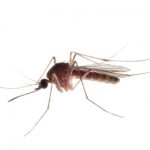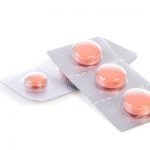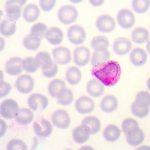Chloroquine and Proguanil
£15.85
About the tablets
- Dosage: The standard dose for adults over 45kg is two tablets of Chloroquine and 2 tablets of Proguanil.
- How to take: Start taking Chloroquine one week before entering the malaria risk area. For Proguanil it is sufficient to start taking the tablets 2 days before entering the risk area. You need to take the prescribed dose of Chloroquine once every week on the same day; Proguanil should be taken once every day. Continue taking Chloroquine and Proguanil until four weeks after leaving the malaria area.
- Side effects: As with most medications, side effects can occur in some patients. Possible side effects include rash, digestive problems, headache or an allergic reaction. Please refer to the manufacturer’s patient information leaflet for a full list of side effects.
- Who can take it? Chloroquine and Proguanil will be suitable for most people provided it is effective in the country you are travelling to. However, it is not suitable for everyone so a healthcare professional needs to assess whether it is safe for you, taking into account important factors like your medical history and any current medications.
- Countries: Only suitable for malaria prevention in a limited number of countries. Your nurse/pharmacist can advise you whether Chloroquine and Proguanil is a suitable option for you by checking up to date recommendations for the country you are travelling to.
- Additional precautions: In addition to taking your tablets as prescribed you need to practise mosquito bite avoidance, e.g. using insect repellents such as DEET (minimum of 20%), wearing protective clothing and using bed nets.
Prices
| Course | 2 weeks (for adults over 45kg) |
| Pack size | 112 tablets (14 chloroquine tablets, 98 proguanil tablets) |
| Price | £15.85 |
What is chloroquine and proguanil?
Chloroquine is an antimalarial. It is used to prevent malaria and it is also used as a treatment for acute malaria. Chloroquine by itself is not recommended anymore due to the widespread resistance to it. Therefore, chloroquine is now used in combination with proguanil for travel to certain countries.
Does chloroquine and proguanil protect against malaria?
Although chloroquine is an antimalarial, it is often not sufficient for prophylaxis. Chloroquine used to be the antimalarial of choice and it was widely used for from 1947 onwards. As a result, the malaria parasites endemic to certain regions developed a resistance to chloroquine. Resistance to chloroquine was observed as early as the 1950s. This is why it’s now only recommended in combination with proguanil, but even together these medications are only recommended in a few countries, to protect against plasmodium vivax, plasmodium ovale and plasmodium malariae.
Your nurse/pharmacist can advise you whether chloroquine and proguanil is a suitable option for you by checking up to date recommendations for the country you are travelling to.
Who can use chloroquine and proguanil tablets?
Whether chloroquine and proguanil tablets will keep you safe during your trip depends on where you are going. If you are travelling to an area where you are at risk of the falciparum parasite, you can’t use chloroquine and proguanil. You will need to use a newer antimalarial such as Malarone instead. Your nurse or pharmacist will advise you on which antimalarial is best for the region you’re travelling to.
Its effectiveness against malaria aside, chloroquine and proguanil is not suitable for everyone.
You cannot take it if you are allergic to any of the ingredients or if you are currently taking a medication called amiodarone which is used to control your heart rate.
Talk to a doctor or pharmacist before taking chloroquine and proguanil if you:
- suffer from epilepsy
- suffer from diabetes
- have a liver or kidney problem
- have a family history of porphyria or suffer from it
- have psoriasis
- suffer from a condition which affects your muscles
- have a blood problem called glucose-6-phosphate dehydrogenase deficiency
- are taking blood thinners (e.g. warfarin)
- are taking protease inhibitors, a class of antiviral drugs to treat HIV (e.g. atazanavir, darunavir, ritonavir, fosamprenavir, lopinavir, saquinavir, tipranavir)
If you are currently taking any other medication it is also important that you ask a doctor or pharmacist whether you can combine it with chloroquine and proguanil. The same applies if you are pregnant, trying for a baby or breastfeeding.
Can you buy chloroquine and proguanil over the counter?
Chloroquine and proguanil is available as an over the counter medicine from your pharmacy, so you don’t need to see a doctor for a prescription in order to be able to buy it. However, it is important that you make sure that it will protect you from the malaria parasites endemic to the region you are travelling to.
How to take chloroquine and proguanil?
The dose of chloroquine and proguanil depends on your body weight. The standard dose for adults over 45kg is two tablets (310mg base) of chloroquine and 2 tablets (200mg) of proguanil. If you are unsure, speak to a nurse or pharmacist who will be able to advise on the correct dose for you. Start taking chloroquine one week before entering the malaria risk area. For proguanil it is sufficient to start taking the tablets 2 days before entering the risk area. You need to take the prescribed dose of chloroquine once every week on the same day; proguanil should be taken once every day. You should take the tablets after a meal and swallow them whole with water. For young children or those who cannot swallow, the tablets can be crushed and added to milk, honey or jam. You must continue taking chloroquine and proguanil until 4 weeks after leaving the malaria area.
Which side effects does it cause?
Chloroquine and proguanil can cause side effects in some patients.
Possible side effects include:
- allergic reactions
- stomach problems – such as nausea and vomiting or diarrhoea
- headache or dizziness
- anxiety
- skin rash
- visual disturbances
- changes in your heart rate
- convulsions
- hypersensitivity (e.g. urticaria)
- choleastasis (reduction or stop in bile flow)
- raise in body temperature
- haematological changes (e.g. reduction in blood cells)
For a full list of all risk and side effects associated with chloroquine and proguanil read the patient information leaflet.



